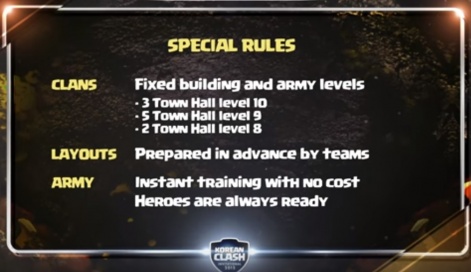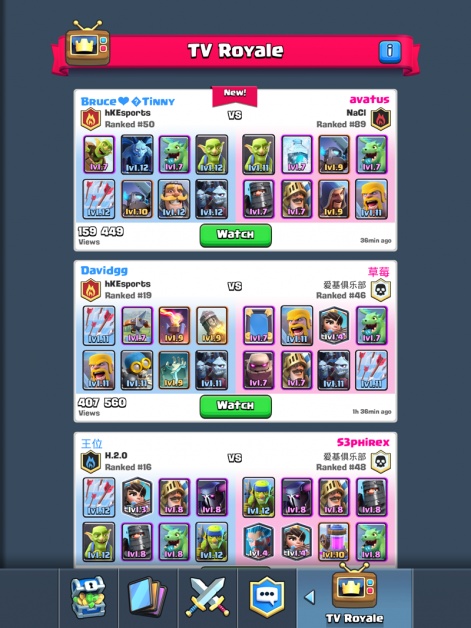It's been argued that Clash Royale, Supercell's latest and the next in line for the mobile gaming throne, won't have the impact on mobile eSports that some are predicting.
And it's a position seemingly based on sound logic, the crux of the idea being that upgradeable units are to the detriment of balanced competition.
In short, the article suggests, it's pay-to-win.
Sound logic, that is, if you assume that successful mobile eSports will be based on the same fundamental values as their PC counterparts.
But I would argue, based on the evidence we have so far, that they will not be.
Changing the game
For starters, I feel we should reject the idea that mobile eSports is totally uncharted territory.
While true that they're overshadowed by the likes of League of Legends on PC, tournaments for mobile games featuring international competitors and thousands of spectators have been going on for a while now.
Tellingly, it's Clash Royale developer Supercell who's found itself at the forefront of this, with Clash of Clans inspiring an unprecedented level of traction as an eSport all around the world.
Clash of Clans tournaments at present tend to be contested for kudos rather than the enormous prize pools in PC eSports, but attendees of 2015's Korean Clash event filled the Yongsan eSports Stadium - a venue usually reserved for competitive Starcraft - to watch teams from South Korea, China, and Sweden compete.
As a fully-fledged eSport, it's in the Philippines that Clash of Clans has proven most successful.
Streamed around the world via Twitch and the official Clash of Clans YouTube channel, the 6-hour event was a polished, slick, and professionally-hosted affair.
But as a fully-fledged eSport, it's in the Philippines that it's proven most successful.
Here, major tournaments are supported by the Philippine eSports Organization with cash prizes for the victors reaching approximately $50,000 - not on a level with the multimillion extravagance of more established of PC titles, but significant nonetheless.
Square peg
However, from simply playing Clash of Clans, you'd never guess it would be capable of even approaching eSport status.
Subject to all the same issues with hard currency-enhanced upgrades and player imbalance as Clash Royale, but with none of the eSport-friendly real-time PvP or TV Royale features, it simply shouldn't work.

But, juggernaut that it is, people are willing to bend the rules and move the goalposts to make it work.
The special rules for Korean Clash included fixed building and army levels, instant training with no cost, and heroes that are always ready.
Where there is imbalance, there will be balance.
Similar tournament-specific tweaks can, and will, overcome the issue of Clash Royale's slow-to-open chests. Where there is imbalance, there will be balance.
Throwing out the rulebook
This could mean that an arena is the only environment in which Clash Royale can be experienced as a true eSport, and I understand why that may cause concerns.
Football, Basketball, and Tennis remain essentially the same whether played in a playground or on the world stage; the fundamental rules don't change.
So perhaps we need a different name for these kinds of experiences, or at least to challenge the existing definition of what an eSport can be.
But based simply on the fact that Supercell has, with force of will alone, propelled the (on paper) utterly unsuitable Clash of Clans to eSport status, it seems sensible to assume the far better positioned Clash Royale can surpass it.
If nothing else, Clash Royale comes with an inbuilt TV Royale channel where you can watch the top players battling it out.
Simply put, if Supercell wants to ignite the mobile eSports market, it will.






















